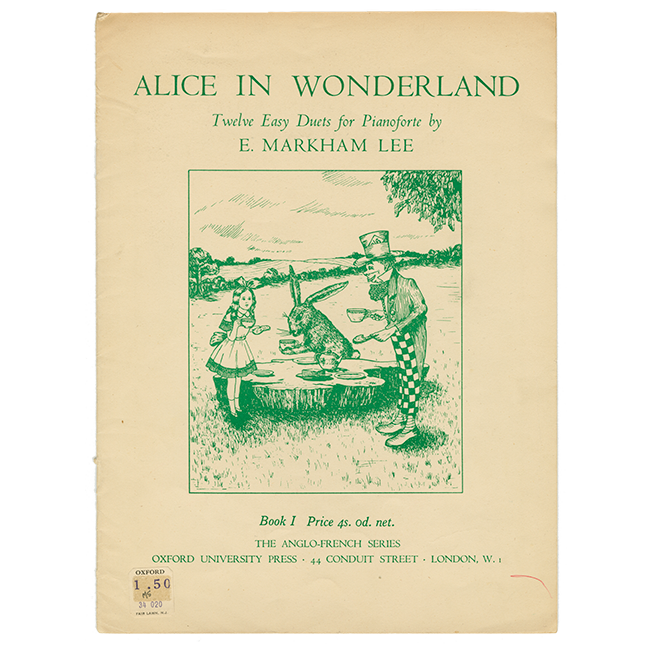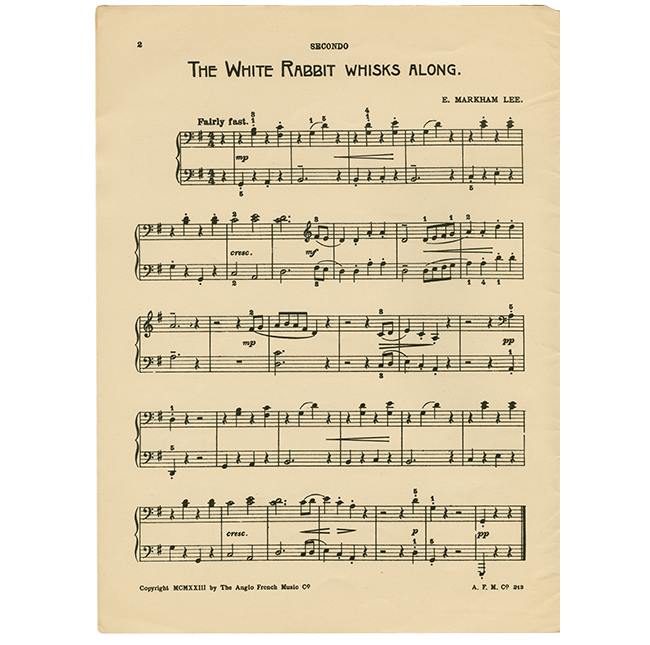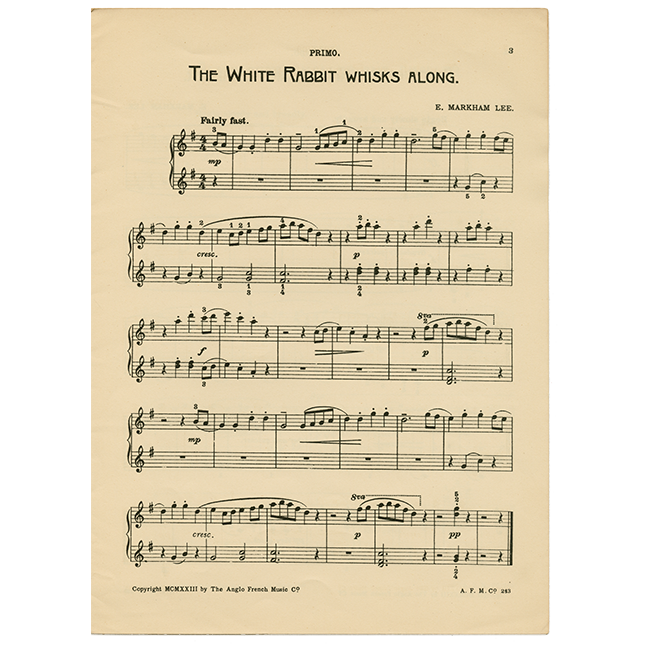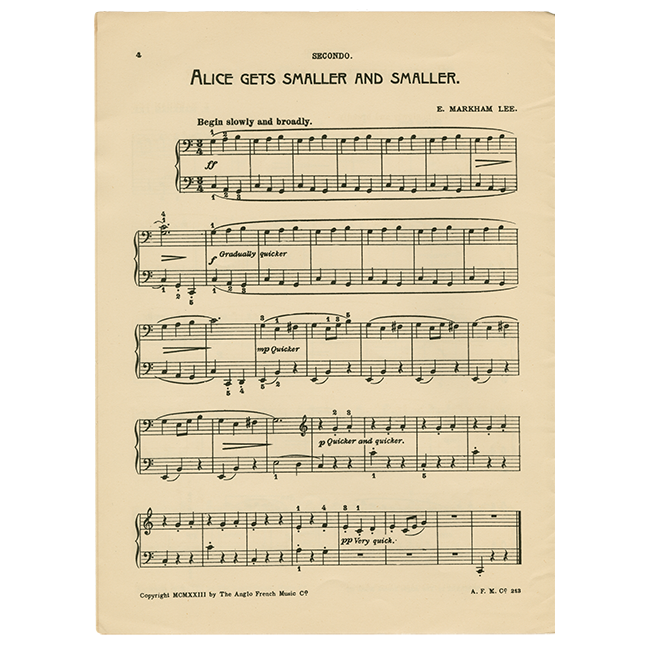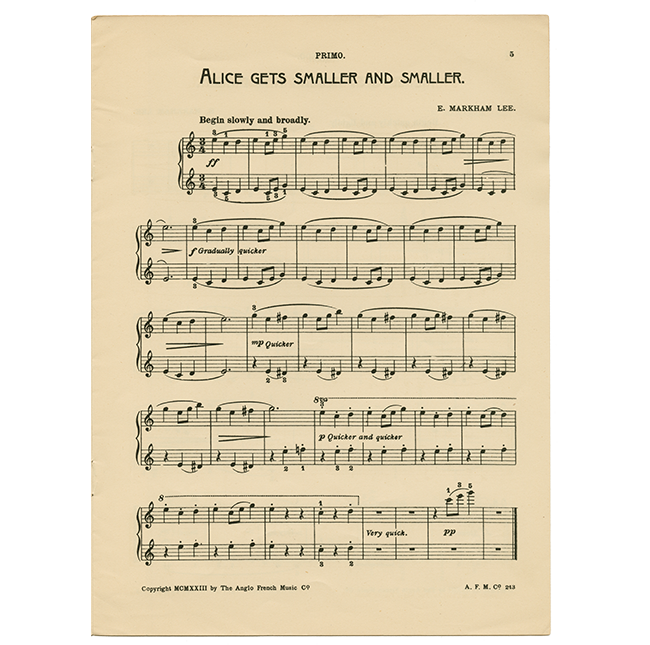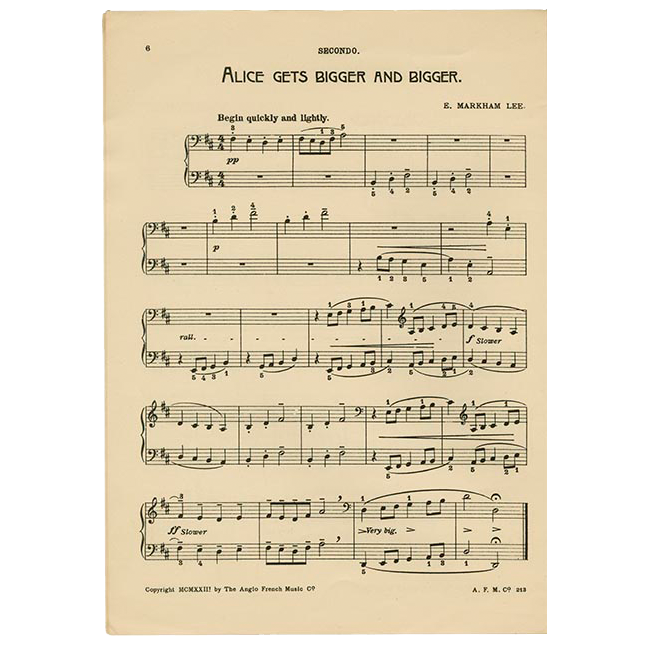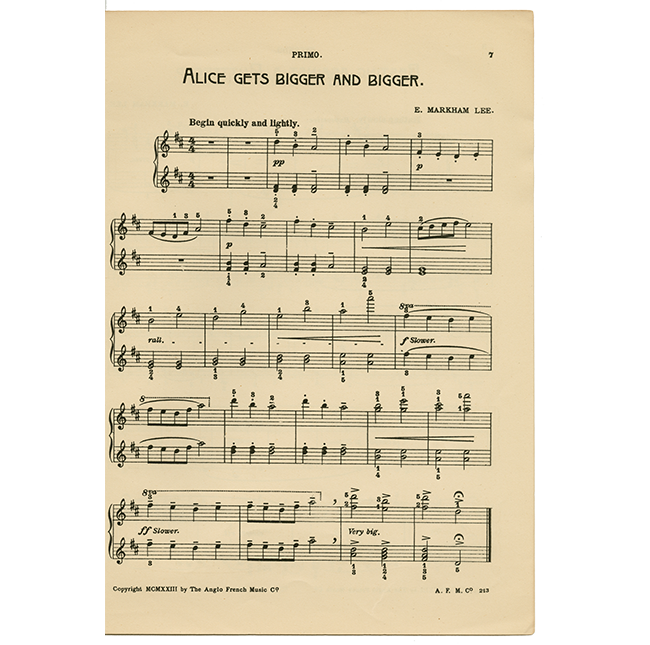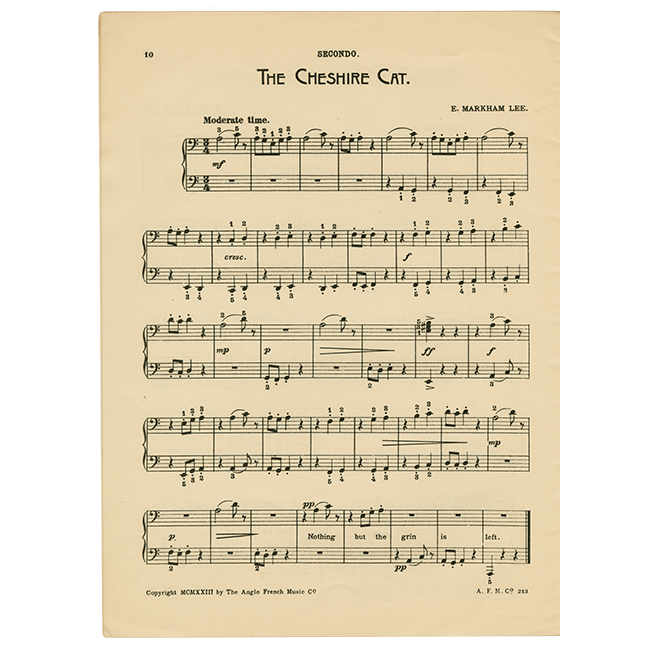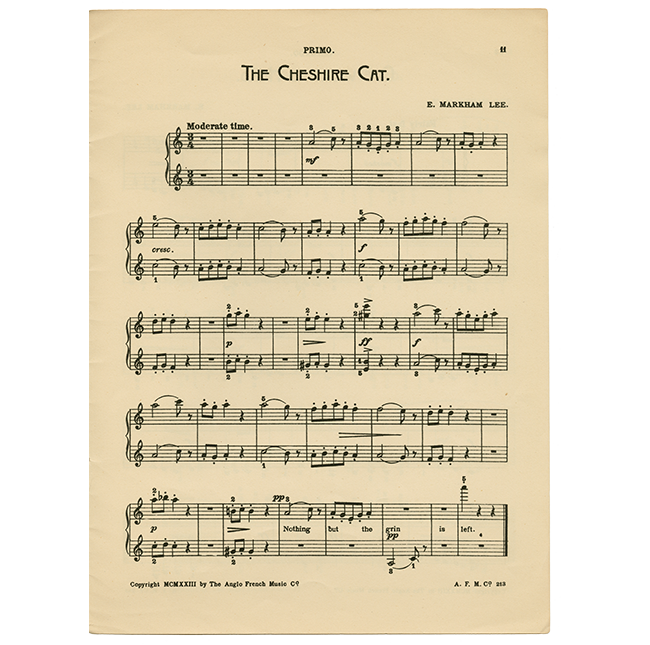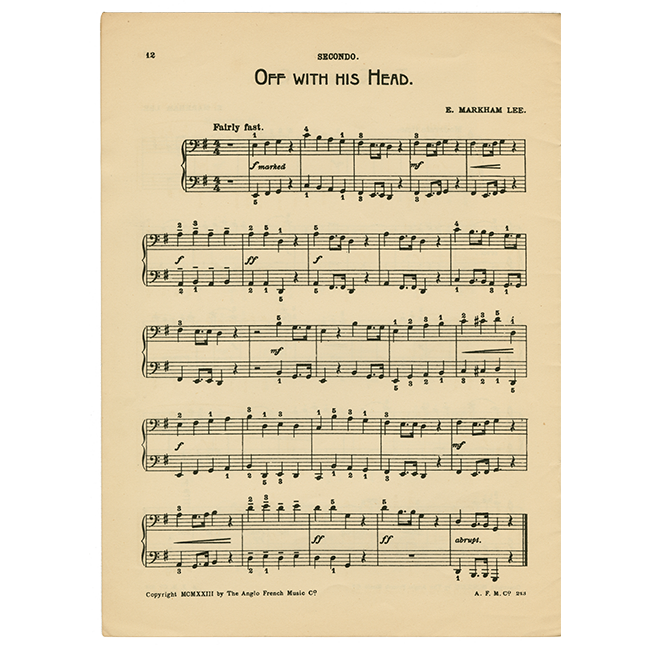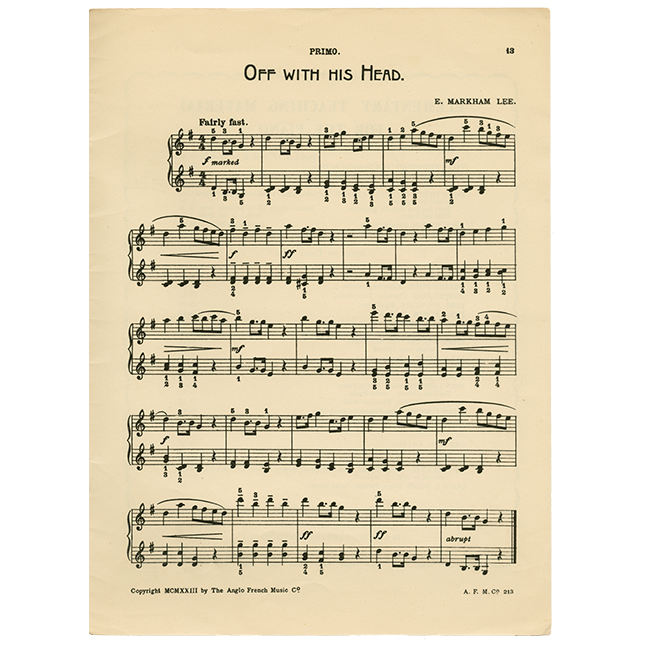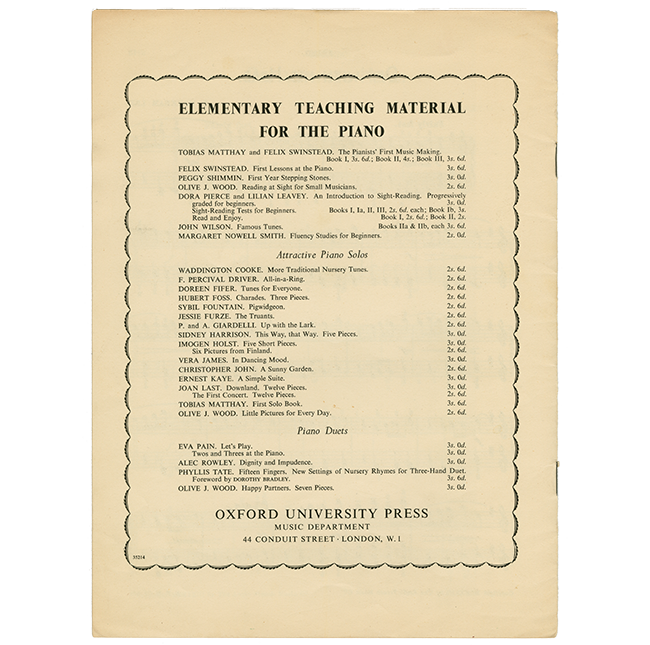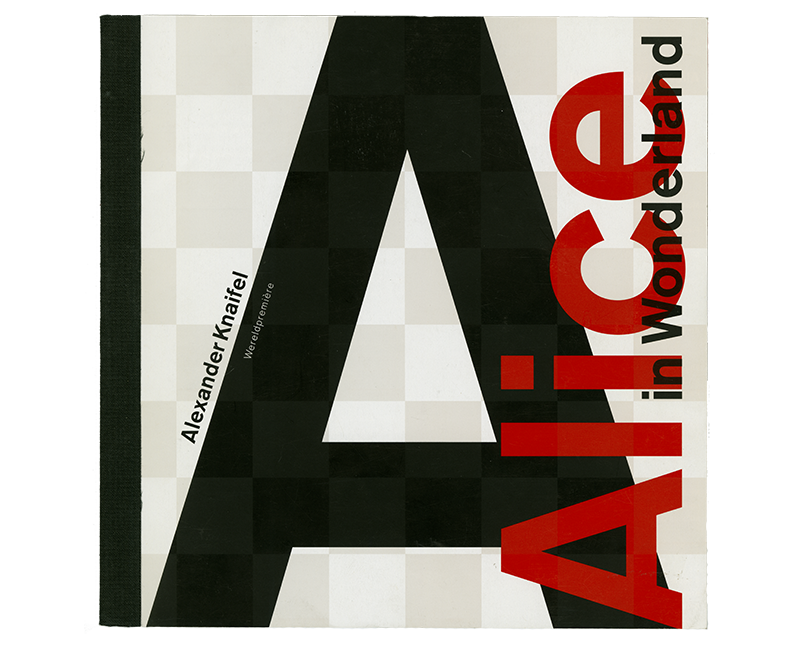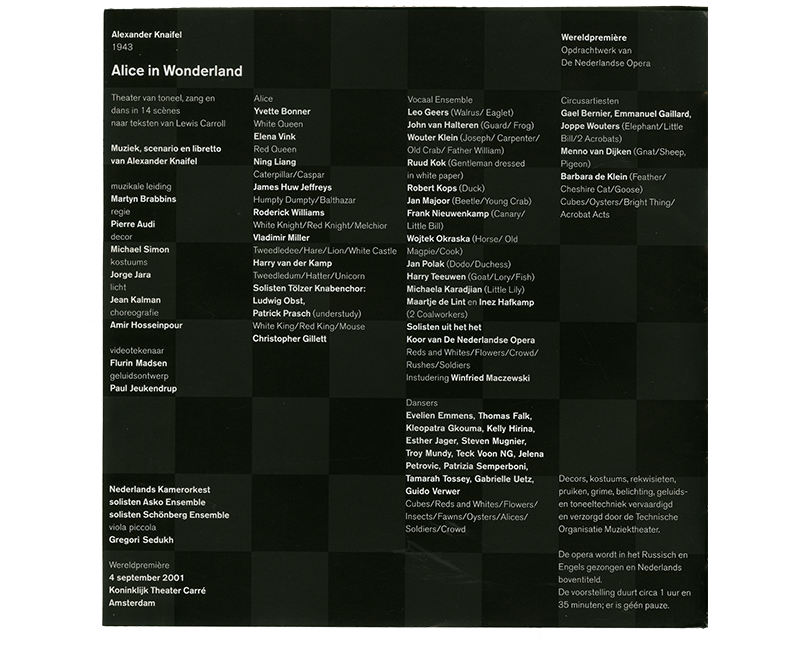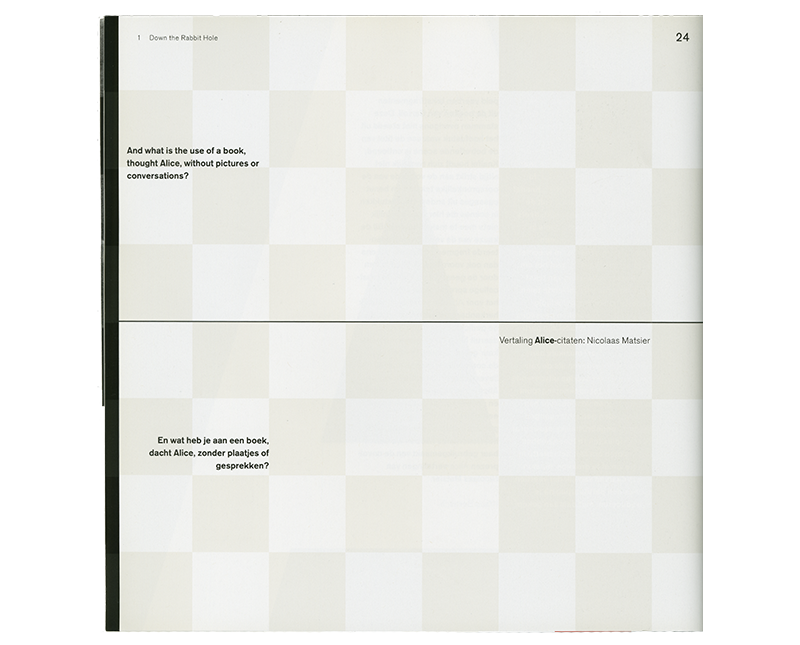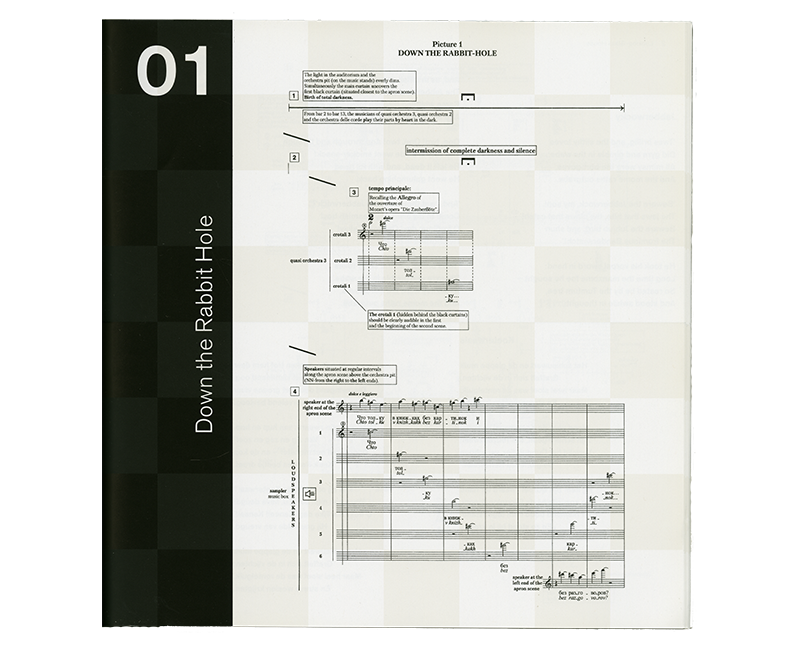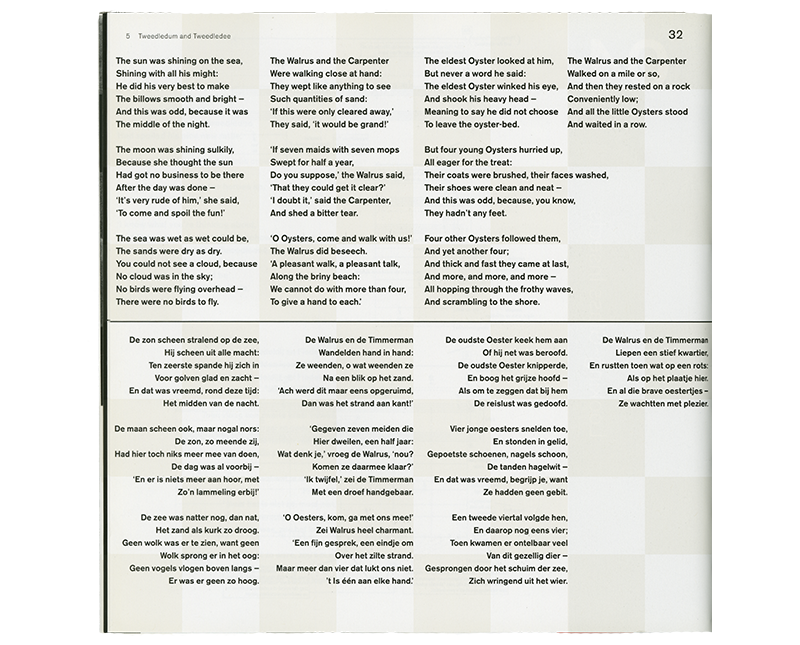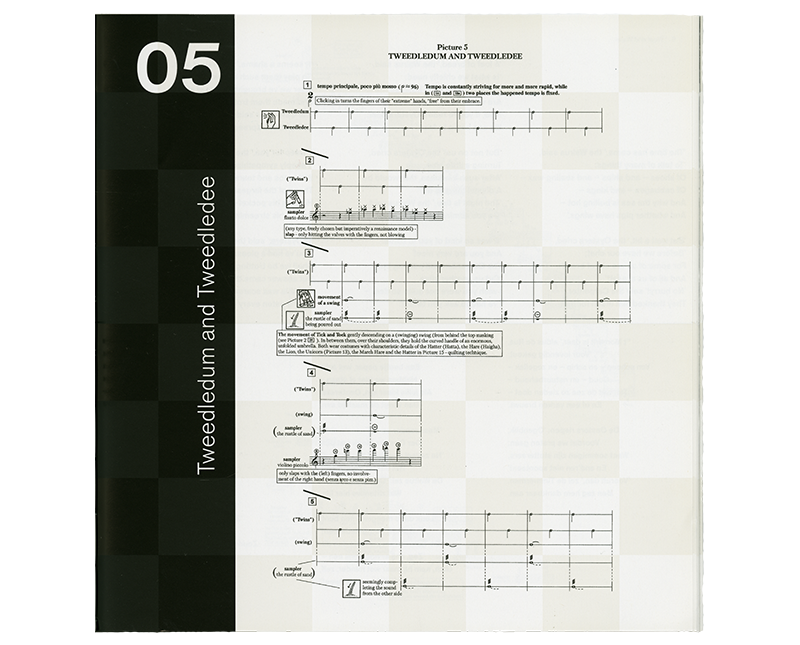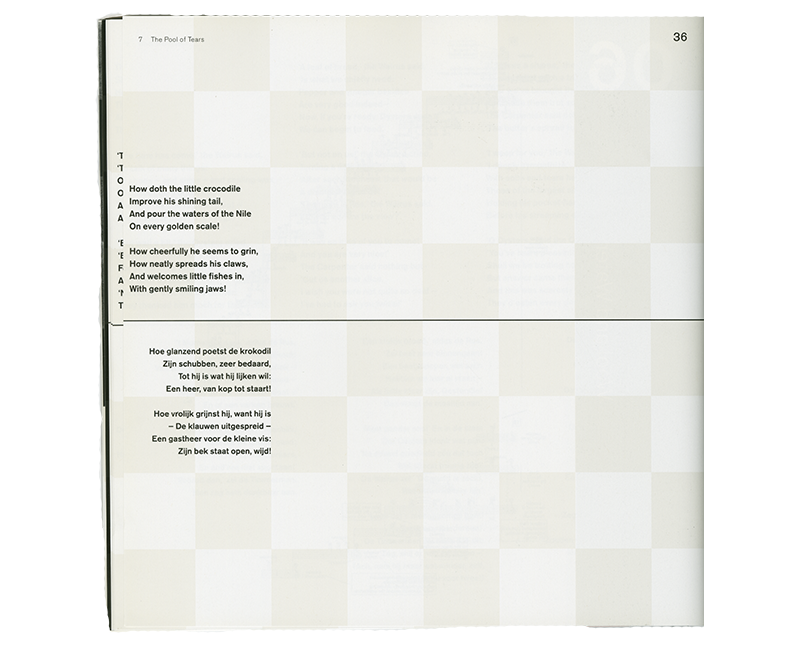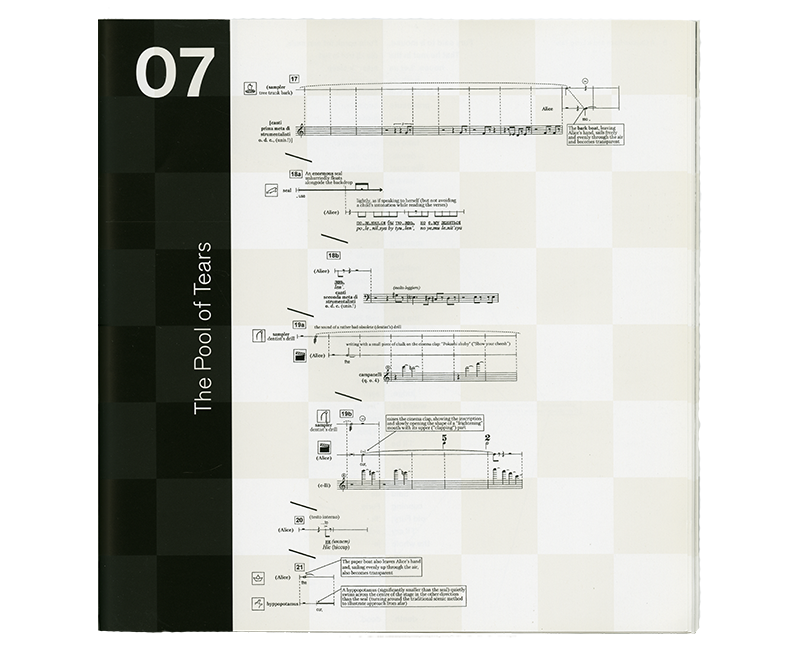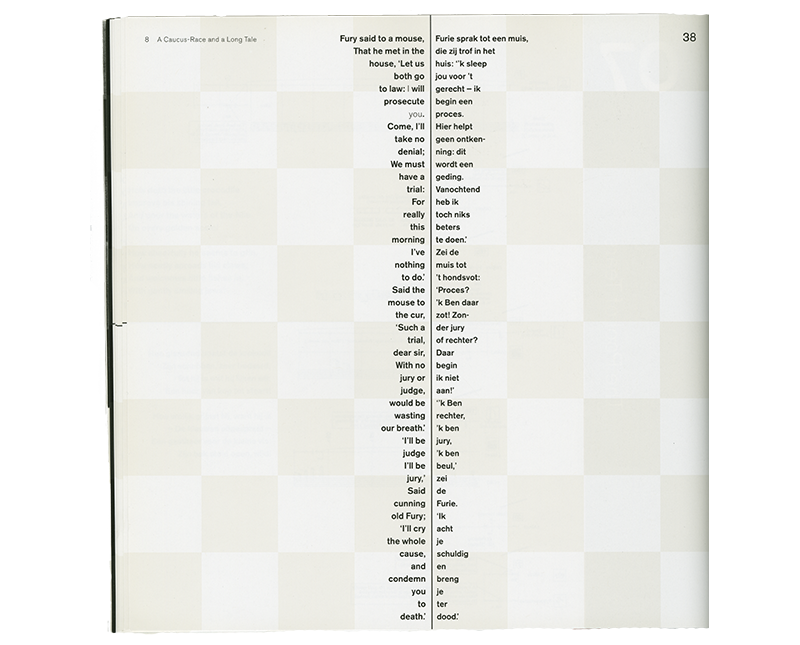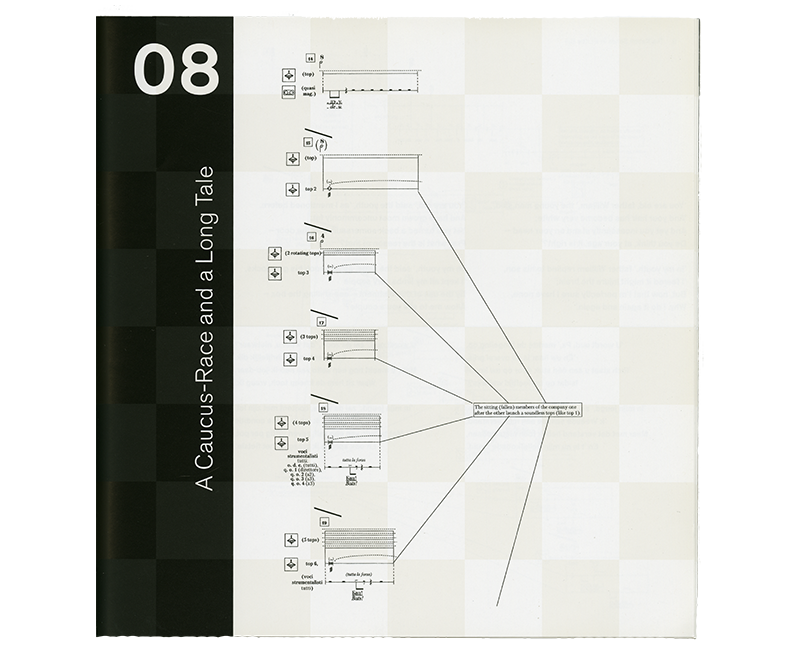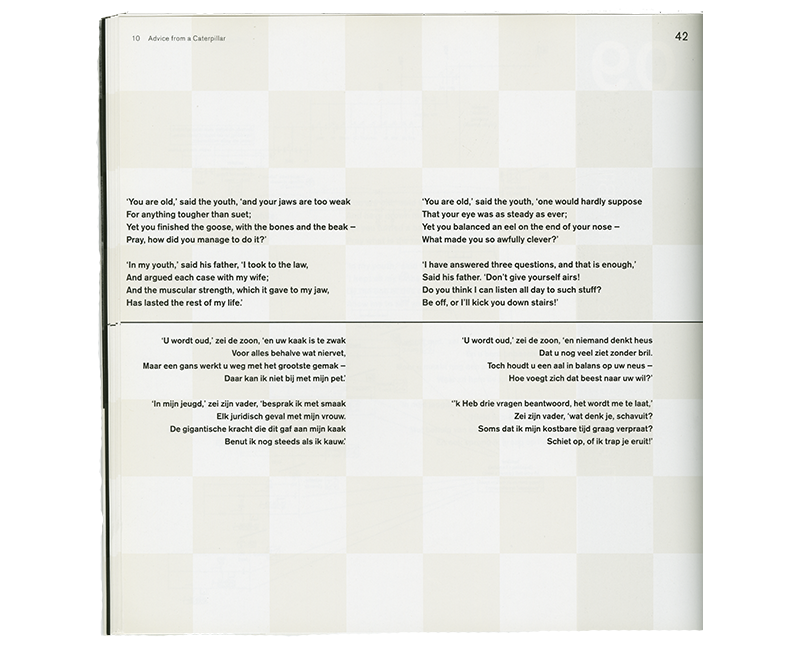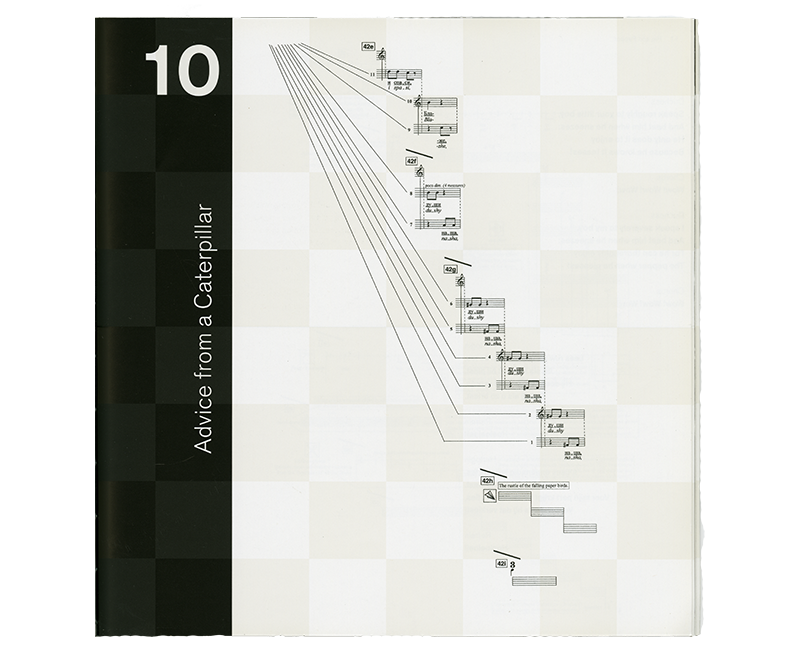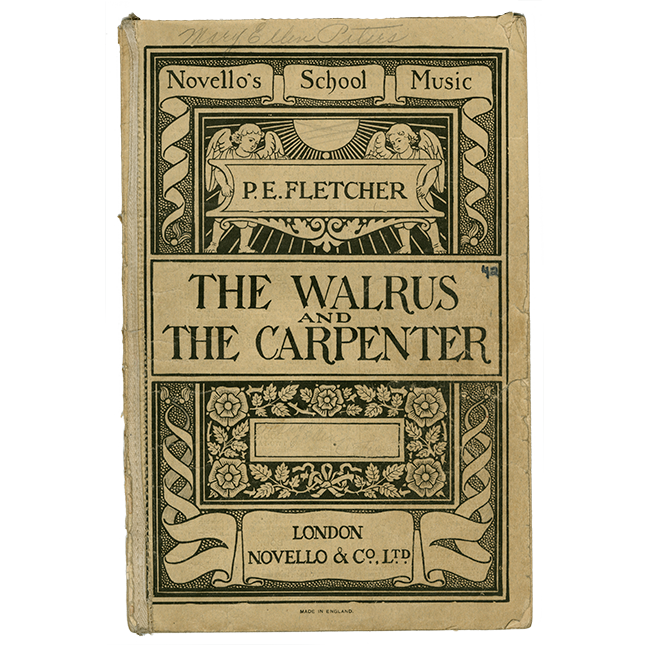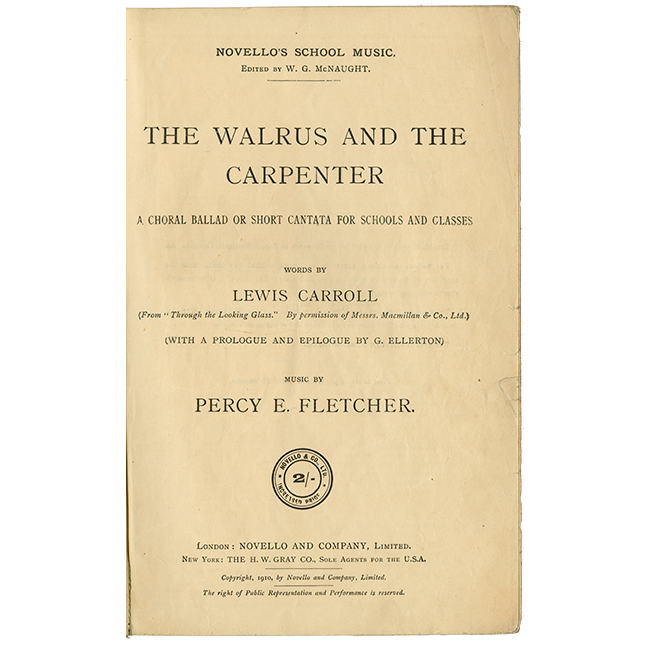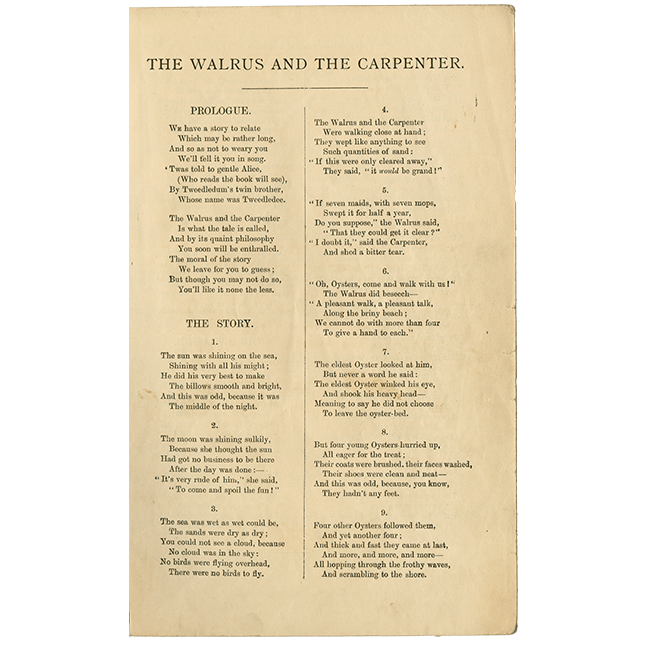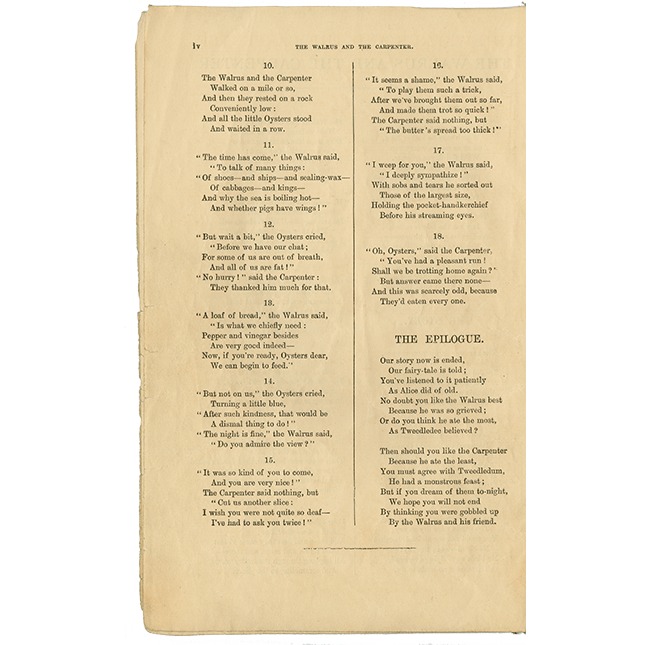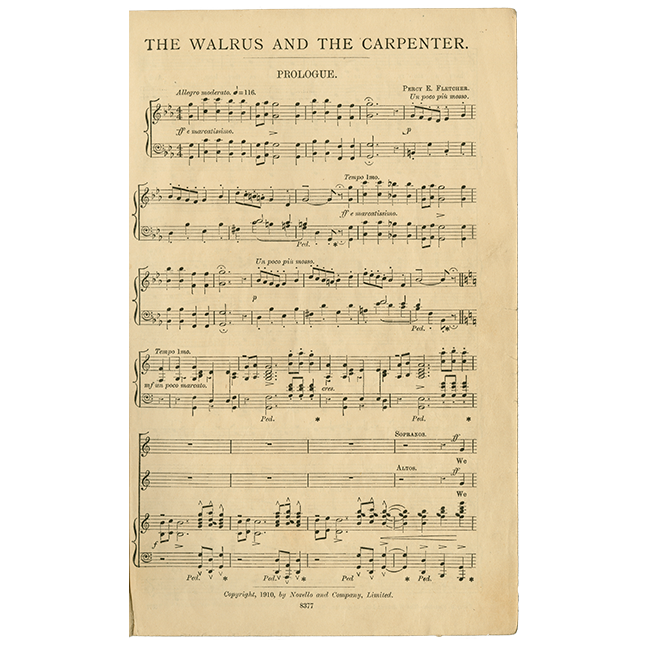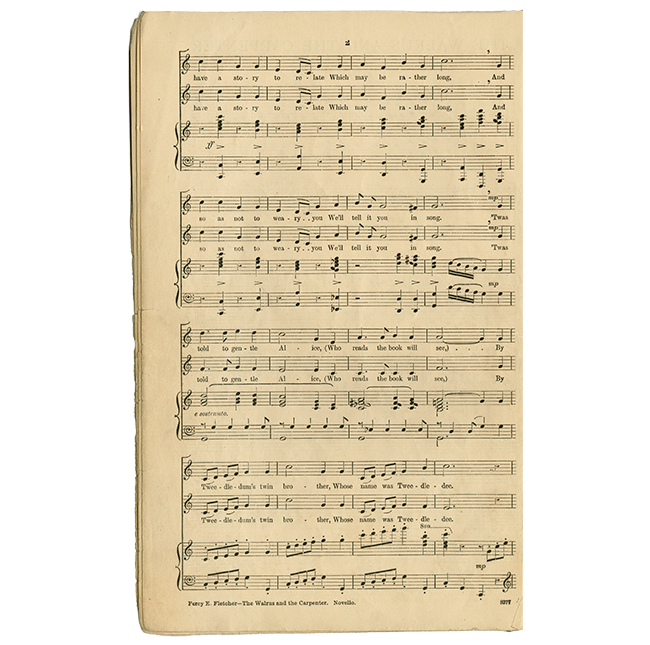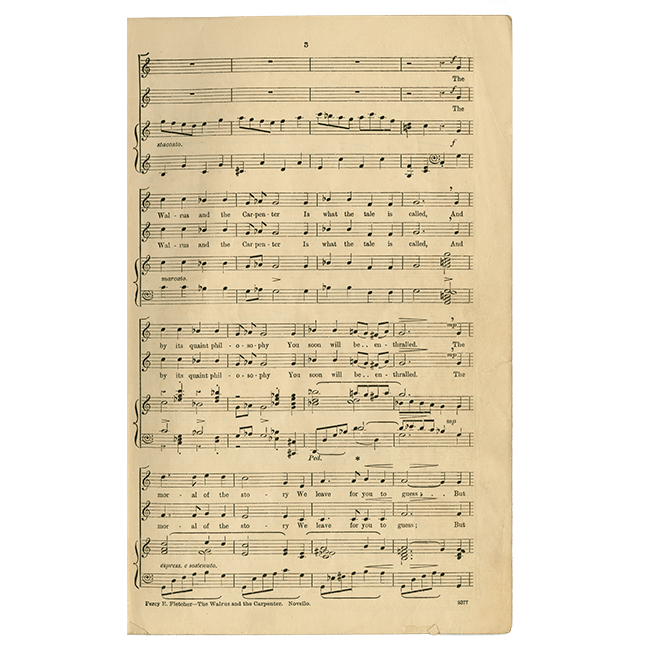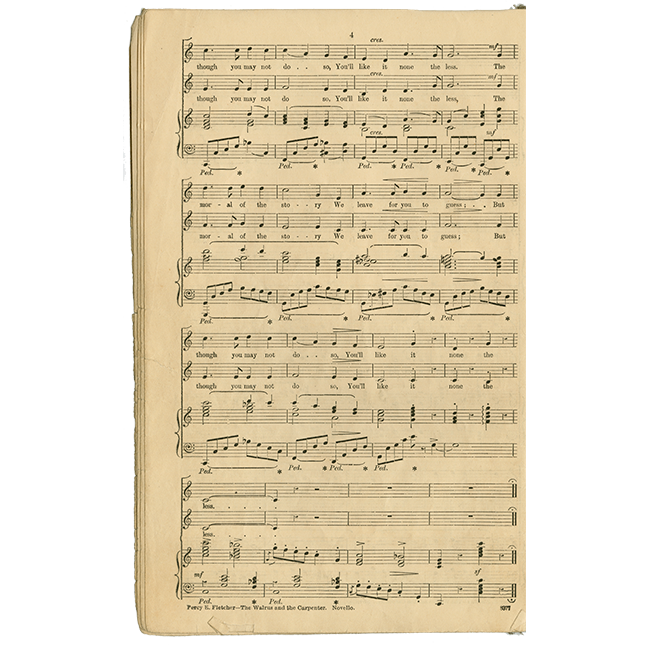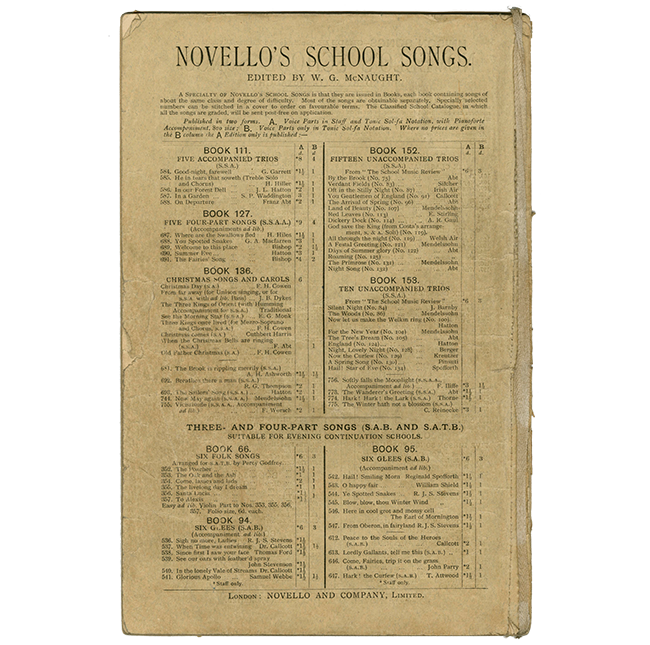Music
Duets
Alice in Wonderland: Twelve Easy Duets for Pianoforte. Book I
By E Markham Lee.
London, Oxford University Press, ©1923.
Composer Ernest Markham Lee (1876–1956) produced many short pieces for young pianists, including twelve duets based on Alice in Wonderland. The six presented in this book are:
- The white rabbit whisks along.
- Alice gets smaller and smaller.
- Alice gets bigger and bigger.
- Resting against a buttercup.
- The Cheshire cat.
- Off with his head.
The rather strange cover illustration of a tea party held on a large tree stump sans Dormouse is not credited.
Exhibit item 9.10
Opera Book
Alice in Wonderland. Theatre van Toneel, Zang en Dans in 14 Scènes Naar Teksten van Lewis Carroll.
[Theatre of Drama, Song and Dance in 14 Scenes to Texts by Lewis Carroll]
Music, script, and libretto by Alexander Knaifel.
Amsterdam: Dee Nederlandse Opera, 2000.
Opera book in Dutch with libretto, music and supplementary material, including text of an interview with Alexander Aronovich Knaifel (1943– ), the Russian-born composer and sometime pupil of Mstislav Rostropovich. Knaifel’s music, one critic wrote "often surprises by its extravagant ideas, strange combination of the instruments or incredibly long duration.”
His score at times echoes fragments of Mozart’s Magic Flute and other times nursery rhymes. A reviewer in Tempo described the work in this way:
Knaifel himself wrote the scenario for his opera, partly in Russian, partly in English, tossing around like playing cards different episodes from both [Alice] books.
Exhibit item 9.13
The Walrus & the Carpenter
The Walrus and the Carpenter: A Choral Ballad or Short Cantata for Schools and Classes.
Music by Percy E. Fletcher.
With a prologue and epilogue by G. Ellerton.
London: Novello & Co., 1910.
Published in Novello’s School Music series, this short work is intended for performance by children at school festivals, concerts, etc. The work is scored for a small orchestra; the voice parts are easy and of moderate compass. Percy Eastman Fletcher (1879–1932) was a classical composer and music director at the Drury Lane Theatre and later His Majesty’s Theatre. The two-stanza prologue by Gustav Ellerton, who is perhaps most remembered for his Gavotte for Violin and Piano, begins charmingly:
We have a story to relate
Which may be rather long,
And so as not to weary you
We’ll tell it you in song.
’Twas told to gentle Alice,
(Who reads the book will see),
By Tweedledum’s twin brother,
Whose name was Tweedledee.
Exhibit item 9.4

